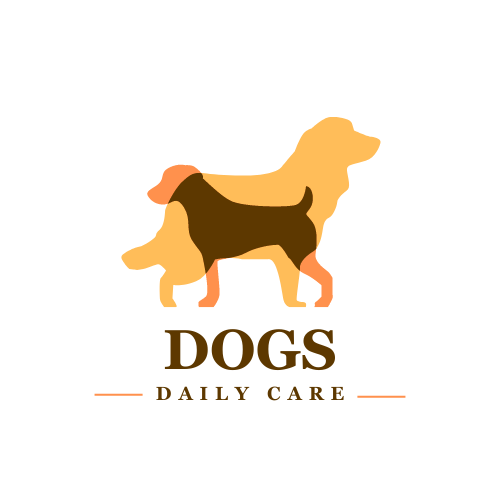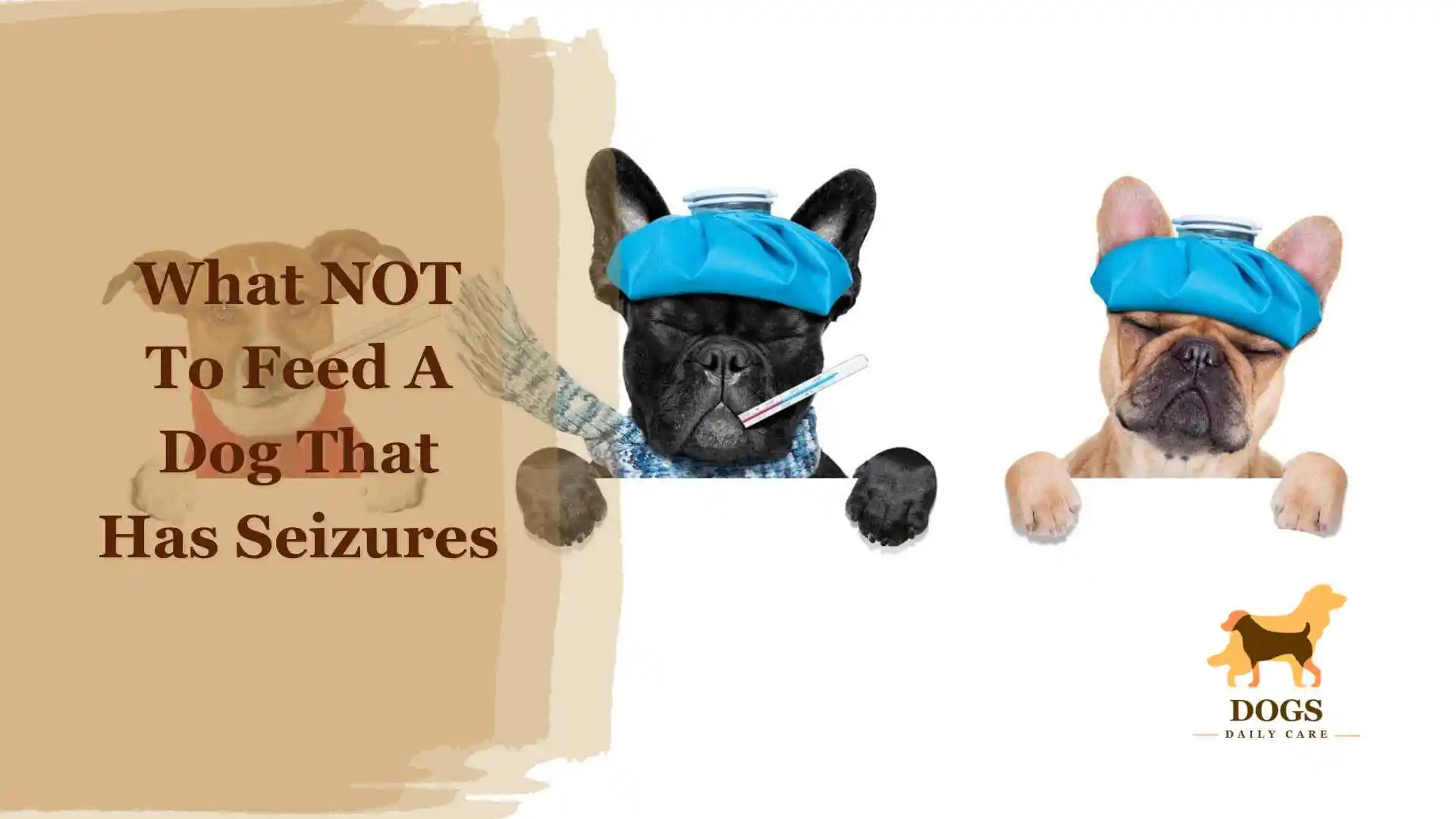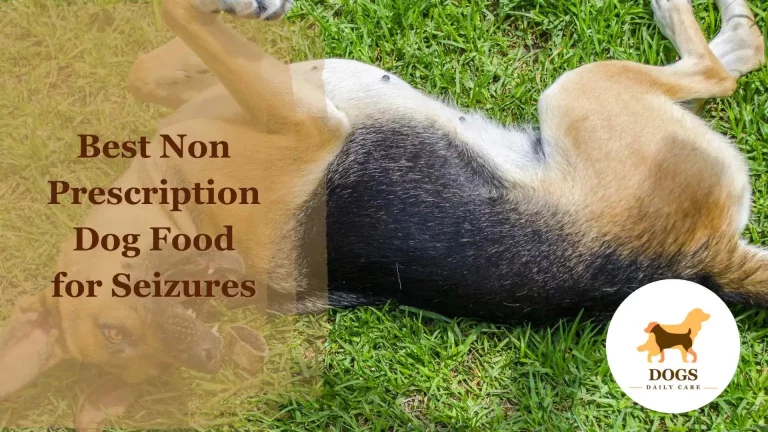What NOT To Feed A Dog That Has Seizures – An Ultimate Guide
As devoted dog owners, our pets’ health and well-being are always at the forefront of our minds. Seizures can be an especially distressing condition to witness in our beloved four-legged friends. Understanding the intricate relationship between a dog’s diet and its health becomes crucial, particularly when we’re dealing with conditions like seizures. A carefully curated diet not only ensures overall wellness but can play a pivotal role in minimizing the risk of seizure episodes.
Recent studies and anecdotal evidence have increasingly highlighted the profound impact certain foods can have on dogs prone to seizures. Just as some ingredients can aggravate the condition, others can serve as protective barriers. As we navigate the maze of dog nutrition, it’s essential to arm ourselves with the right knowledge, ensuring our furry companions get the best while steering clear of potential triggers.
In this comprehensive guide, we’ll delve into the specifics of what foods to avoid for dogs with seizures. From everyday ingredients you might unknowingly slip as treats to hidden culprits in commercial dog foods, we’ve got you covered. Let’s embark on this journey of informed pet parenting together!
Understanding Canine Seizures
Canine seizures, while distressing to witness, are more common than many dog owners realize. These sudden bursts of uncontrolled electrical activity in a dog’s brain can manifest as anything from subtle twitching to more pronounced convulsions. The causes behind seizures in dogs are vast and varied. They can stem from underlying health conditions like epilepsy, brain tumors, or even certain metabolic issues such as low blood sugar.
It’s essential to note that not all seizures are alike. They can be categorized based on their origin – focal (originating from a specific part of the brain) or generalized (involving the entire brain). Moreover, triggers can range from genetic predispositions and head injuries to, quite significantly, dietary factors. Recent research has shed light on how specific foods and ingredients can either exacerbate or mitigate the frequency and intensity of seizures.
Understanding the mechanics and triggers of canine seizures is the first step in offering our pets a better quality of life. Armed with this knowledge, we can make more informed decisions about their diet and environment, ensuring they lead a happy, seizure-minimized life. The power of proper nutrition in this context cannot be overstated, as we’ll explore in the upcoming sections.
Foods to Avoid for Dogs with Seizures
For many dog owners, treating their pets with table scraps and occasional tidbits is a cherished ritual. However, when managing a dog prone to seizures, it’s essential to be extra vigilant about their diet. Some foods, seemingly harmless or even beneficial for humans, can be detrimental to a seizure-prone canine. Let’s delve into the specifics:
1. Salt

While a small amount is vital for dogs just as it is for humans, excessive salt can lead to sodium ion poisoning. Symptoms can range from extreme thirst and urination to tremors, and in severe cases, it can exacerbate seizures.
2. Refined Sugars

Sugary treats might make your dog’s tail wag, but they’re not doing their health any favors. High sugar consumption can cause blood sugar spikes, potentially leading to hypoglycemia, which is a known trigger for seizures in dogs.
3. Artificial Sweeteners

Xylitol, commonly found in sugar-free gum and certain baked goods, is highly toxic for dogs. Even small amounts can cause rapid insulin release, leading to hypoglycemia, and increase the risk of seizures.
4. Chocolate and Caffeine

Most dog owners are aware of chocolate’s toxicity for their pets, but not everyone knows it’s due to theobromine. This compound, along with caffeine, is neurotoxic for dogs and can induce seizures even in small amounts.
5. Alcohol

Just a small sip can adversely affect a dog’s nervous system. Its depressive effects can cause a drop in body temperature, leading to respiratory distress and increasing the risk of seizures.
6. Certain Dairy Products

While some dogs handle dairy well, others can be lactose intolerant. This can cause digestive upset and, in some cases, indirectly trigger seizures.
7. Fatty Foods
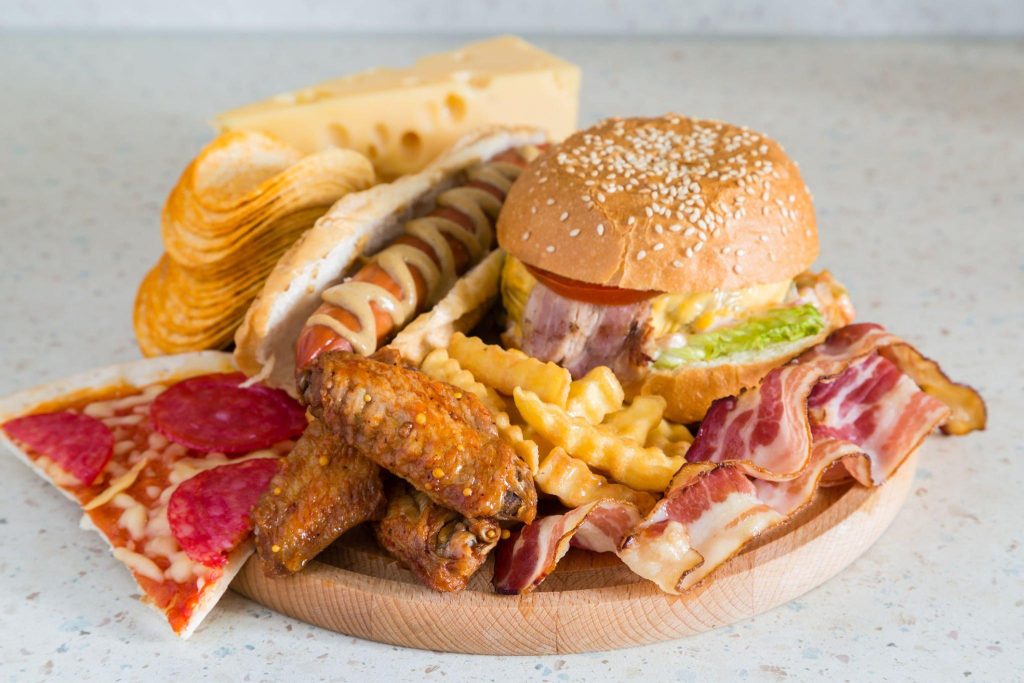
Foods high in fat, like bacon or fried treats, can lead to pancreatitis in dogs. This inflammation of the pancreas can be a precursor to seizures.
8. Grapes and Raisins

The exact reason is still a mystery, but even small amounts of these fruits can lead to kidney failure in dogs, potentially resulting in seizures.
9. Certain Fish Types
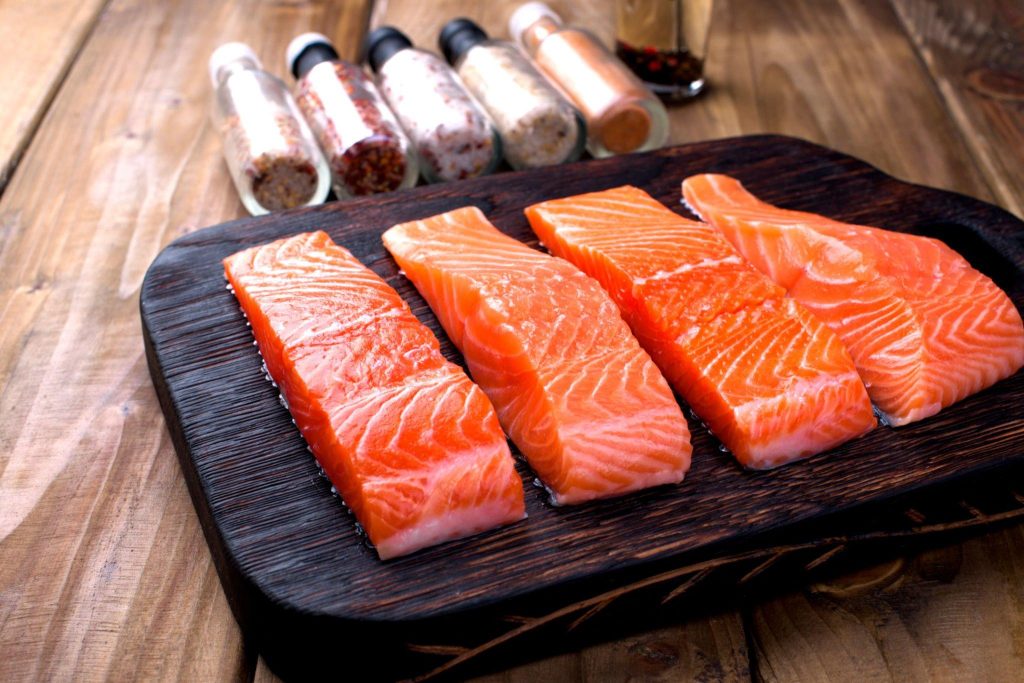
Fish such as salmon and trout can carry a parasite harmful to dogs if not cooked properly. Additionally, some fish are high in thiaminase, which breaks down vitamin B1 – a deficiency of which can lead to seizures.
10. Foods with MSG

Often used as a flavor enhancer in many processed foods, MSG can have neurological effects on dogs, making it a potential seizure trigger.
In the quest to protect our furry friends from seizures, understanding the dietary pitfalls is half the battle. As we become more informed about these foods and their effects, we can tailor our pets’ diets to ensure they’re not only delicious but also safe.
Other Potential Triggers
Beyond the realm of food, there are numerous environmental and external factors that may influence the frequency and severity of seizures in dogs. While dietary considerations play a pivotal role, as responsible dog parents, we need to keep an eye out for these other potential triggers that may sometimes fly under the radar:
Preservatives and Food Coloring

Many commercial dog foods and treats, especially the less expensive brands, might be laden with artificial preservatives and colorings. Some of these additives have been speculated to trigger or worsen seizures in susceptible dogs. Always opt for natural, wholesome dog foods and treats when possible.
Certain Medications and Supplements

Some drugs, although designed to aid with other health issues, can have the unintended side effect of provoking seizures. If your dog is on any medication, it’s paramount to consult with your veterinarian about its potential side effects and interactions.
Environmental Toxins

Pesticides, certain household cleaners, and even some plants can have neurotoxic effects on dogs. Ensuring your home and garden are free from these hazards can play a part in reducing seizure occurrences.
Sudden Changes in Diet
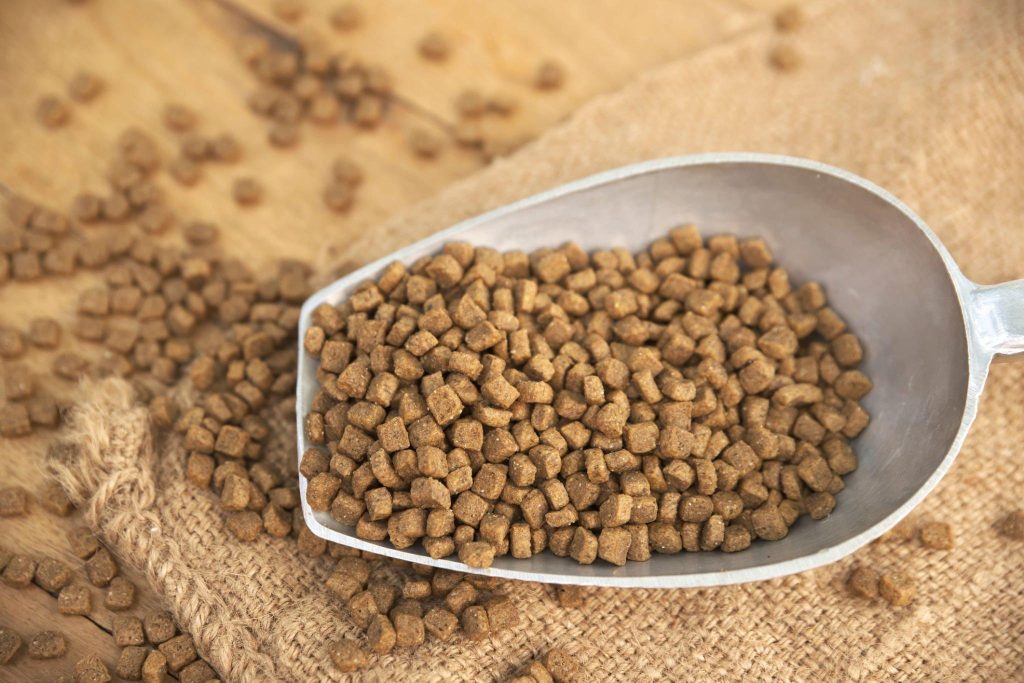
Even if you’re switching to a healthier, more natural diet, sudden changes can stress a dog’s system. Always transition foods gradually, over a week or more, to give your pet’s digestive system time to adjust.
Extreme Temperatures
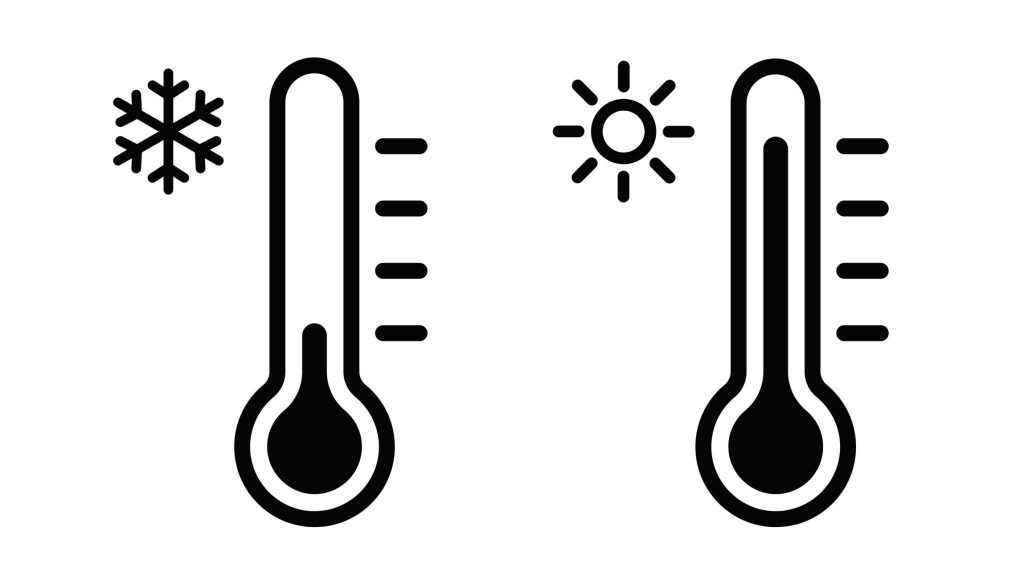
Excessive heat or cold can stress a dog’s body, leading to potential seizures. Ensure your dog has a comfortable living environment, especially during extreme weather conditions.
Overstimulation

Bright flashing lights, loud noises, or overly hectic environments can potentially be a trigger for some dogs. It’s always good practice to monitor and regulate stimuli, especially if you’re aware of your dog’s sensitivity.
Being proactive in recognizing and mitigating these triggers can make a world of difference for dogs with a predisposition to seizures. An ounce of prevention, as they say, is worth a pound of cure. By fostering a safe environment and being attuned to these potential hazards, we’re taking a significant step towards ensuring our furry friends lead a comfortable, joy-filled life.
Foods Beneficial for Dogs with Seizures
While navigating the maze of foods that can potentially harm our seizure-prone furry friends, it’s equally crucial to spotlight those beneficial foods that can support their neurological health. Also, there are some non-prescription foods that you can feed your dog suffering from seizure. A balanced diet can act as the first line of defense against seizures, and certain ingredients have properties that make them particularly potent allies. Let’s delve into some of these seizure-resisting superfoods:
Omega-3 Fatty Acids
Found in abundance in fish like salmon, sardines, and mackerel, omega-3s are celebrated for their anti-inflammatory properties. They support brain health and can potentially reduce the severity and frequency of seizures.
Antioxidants
Blueberries, cranberries, and sweet potatoes are packed with antioxidants that fight against oxidative stress, a factor that can contribute to neurological disorders. Integrating these into your dog’s diet can provide a protective shield against seizures.
Vitamin E
This powerful antioxidant, found in spinach, turnip greens, and chard, offers neuroprotective benefits. A sprinkle of these greens in their food can go a long way in supporting your dog’s brain health.
Whole Grains
Brown rice, oatmeal, and quinoa are slow-releasing energy sources that help in maintaining stable blood sugar levels. Consistent blood sugar reduces the risk of hypoglycemia, a potential trigger for seizures.
Turmeric
This golden spice, with its active ingredient curcumin, has anti-inflammatory properties. Used in moderation, it can be a valuable addition to your dog’s diet, offering both flavor and health benefits.
Lean Proteins
Chicken, turkey, and lean beef are not only delicious for your dog but also provide essential amino acids that support brain function. Ensure they are cooked without any added salts or spices for optimal benefits.
Embracing these nutritious foods can be a game-changer for dogs susceptible to seizures. As with any dietary changes, it’s always wise to introduce new foods gradually and monitor for any adverse reactions. Moreover, a consultation with a pet nutritionist or veterinarian can provide tailored recommendations for your dog’s unique needs. In the realm of canine health, the right foods truly have the power to heal, protect, and nourish.
Frequently Asked Questions (FAQs)
In the realm of canine seizures and diet, many questions crop up repeatedly. Whether you’re a concerned pet owner or just curious, let’s address some of the most frequently asked questions on this topic:
1. Can a dog’s diet really influence the occurrence of seizures?
Absolutely! While genetics and other factors play a role, diet significantly impacts a dog’s overall health, including its neurological well-being. Certain foods can either exacerbate or potentially minimize the risk of seizures, making dietary choices pivotal for dogs prone to this condition.
2. Are there any specific commercial dog food brands recommended for dogs with seizures?
Yes, several high-quality commercial dog food brands cater to dogs with special dietary needs, including those prone to seizures. However, it’s essential to consult with your veterinarian or a pet nutritionist, as they can recommend brands based on your dog’s unique health profile and needs.
3. How soon can I expect to see changes after transitioning to a seizure-friendly diet?
The timeline can vary based on the individual dog and the severity of their condition. Some pet owners notice a decrease in seizure frequency within weeks, while others might take a few months. Consistency is key, and regular check-ins with your veterinarian can help monitor progress.
4. Are there natural supplements that can help reduce the risk of seizures?
Yes, certain natural supplements, such as fish oil (rich in omega-3 fatty acids), vitamin E, and taurine, can potentially support neurological health and reduce seizure risk. However, it’s crucial to introduce any supplement under the guidance of a veterinarian to ensure the right dosage and avoid potential interactions.
5. If my dog accidentally consumes a trigger food, what should I do?
Stay calm and monitor your dog closely for any adverse reactions or signs of an impending seizure. Ensure they have access to fresh water and a quiet, safe space. If the consumed quantity is significant or if you notice severe symptoms, seek immediate veterinary attention.
These FAQs offer a glimpse into the myriad concerns dog owners have about seizures and diet. Always prioritize professional guidance and continually educate yourself to make informed decisions for your pet’s well-being.
Conclusion
Navigating the intricacies of a dog’s diet, especially when seizures come into play, can undoubtedly feel daunting. Yet, with informed choices and consistent efforts, it’s entirely possible to create a nutritional landscape that bolsters their neurological health. Prioritizing foods beneficial for seizure-prone dogs and steering clear of potential triggers can make a transformative difference in the frequency and severity of these episodes.
The journey to a seizure-friendly diet is a testament to the profound love and care we extend to our furry companions. By continually educating ourselves, seeking expert guidance, and tuning into our dog’s unique needs, we pave the way for a healthier, happier, and seizure-resilient future for our beloved pets.
